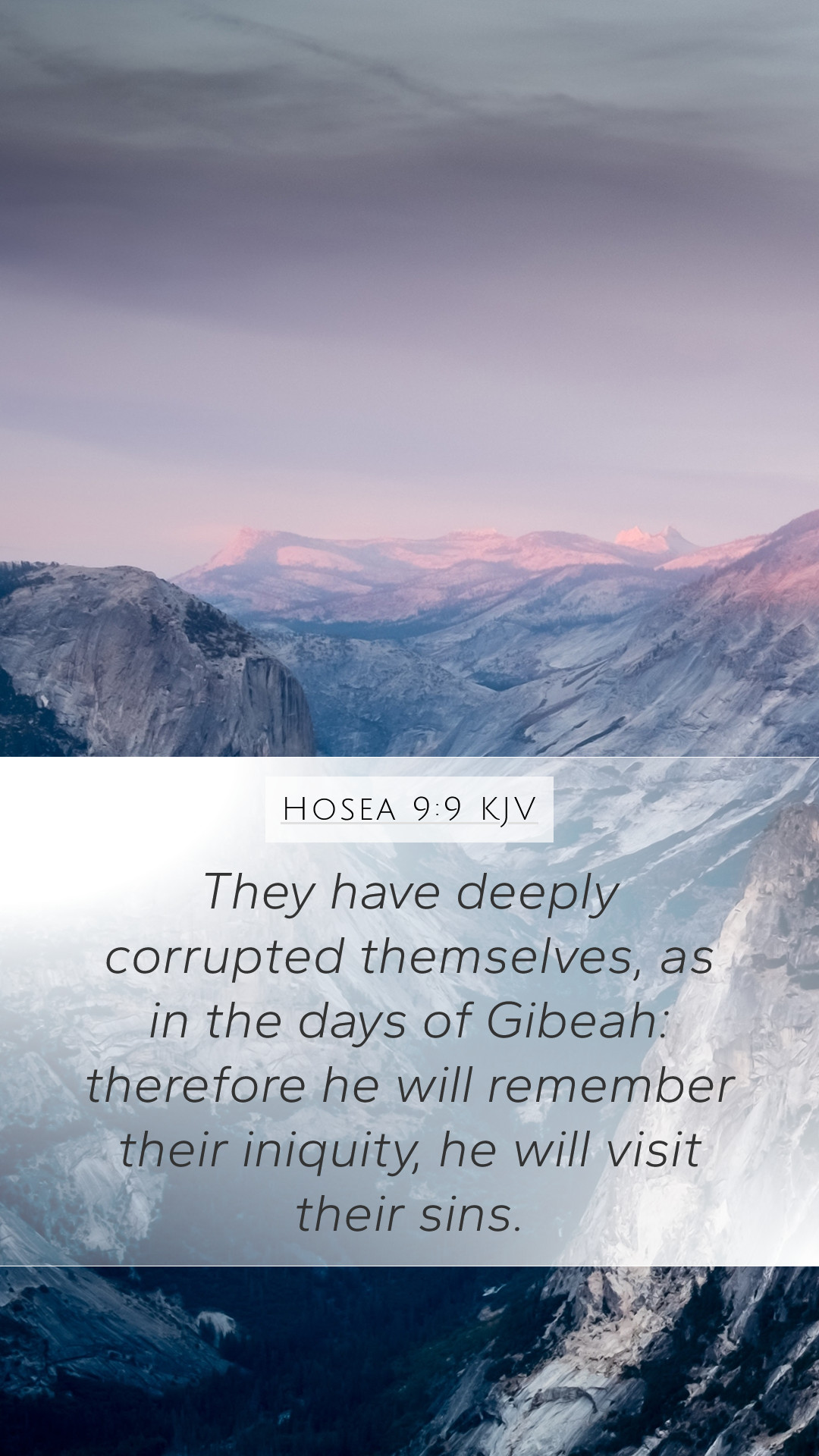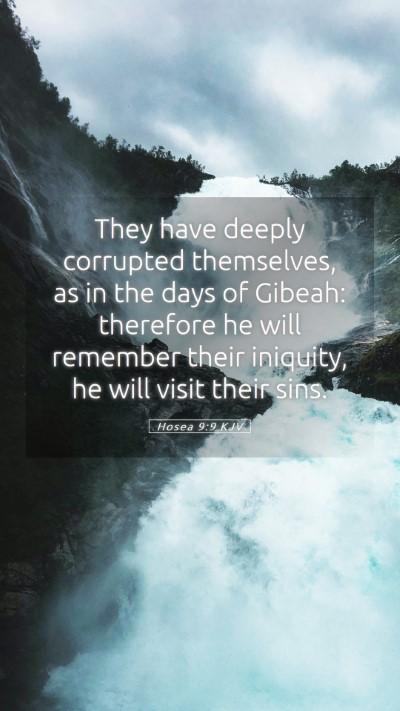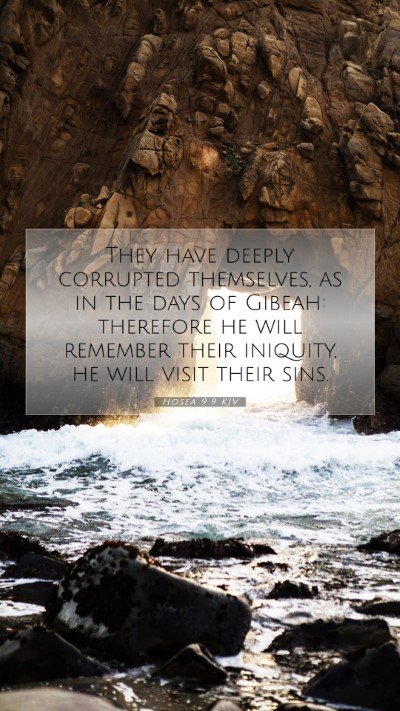Old Testament
Genesis Exodus Leviticus Numbers Deuteronomy Joshua Judges Ruth 1 Samuel 2 Samuel 1 Kings 2 Kings 1 Chronicles 2 Chronicles Ezra Nehemiah Esther Job Psalms Proverbs Ecclesiastes Song of Solomon Isaiah Jeremiah Lamentations Ezekiel Daniel Hosea Joel Amos Obadiah Jonah Micah Nahum Habakkuk Zephaniah Haggai Zechariah MalachiHosea 9:9 Meaning
What is the meaning of Hosea 9:9?
They have deeply corrupted themselves, as in the days of Gibeah: therefore he will remember their iniquity, he will visit their sins.
Hosea 9:9 Bible Verse Meaning
Bible Verse Commentary: Hosea 9:9
Understanding Bible verse meanings is essential for deepening one's faith and comprehension of Scripture. In this analysis of Hosea 9:9, we draw insights from public domain commentaries by Matthew Henry, Albert Barnes, and Adam Clarke. This verse encapsulates themes of sin, divine judgment, and the sorrow of God over Israel's waywardness.
Verse Text
Hosea 9:9: "They have deeply corrupted themselves, as in the days of Gibeah: therefore he will remember their iniquity, he will visit their sins." (KJV)
Summary of Interpretations
This verse offers profound commentary on the nature of sin and its consequences, particularly focusing on the Israelites. Let's break down the insights derived from various commentaries:
-
Matthew Henry's Commentary
Henry emphasizes God's justice in remembering the sins of Israel akin to the historical account of Gibeah, where severe moral corruption led to devastating consequences. He suggests that the reference to Gibeah serves as a warning to Israel of impending judgment due to their own iniquities. Henry notes that God’s unwillingness to overlook such deep-seated corruption signifies His profound holiness and desire for righteousness among His people.
-
Albert Barnes' Notes
Barnes explains that the phrase "deeply corrupted themselves" indicates a willful choice to abandon God's ways for sinful pursuits. He connects the moral downfall of Israel to that of Gibeah, where heinous acts were committed. Barnes points out that the inevitable judgment is a reflection of God’s unwavering commitment to justice, highlighting that divine visitation of sin is necessary to uphold the moral order.
-
Adam Clarke's Commentary
Clarke provides a contextual analysis, noting that the reference to Gibeah alludes to a time of great depravity among the Israelites. He underscores that the consequences of sin are not only immediate but also carry a remembrance in God's dealings with His people. Clarke suggests that this verse serves as both a historical reminder and a prophetic warning, urging the people of Israel to repent and return to God lest they suffer dire consequences for their transgressions.
Theological Themes
Hosea 9:9 encapsulates several critical theological themes:
- Sin and Corruption: The verse illustrates the deep-rooted sinfulness that had overtaken Israel, reminding readers of the pervasive nature of corruption.
- Divine Judgment: God's promise to remember and visit sins exemplifies His pursuit of justice, highlighting that no sin escapes His notice.
- Historical Context: By paralleling Israel's actions with the days of Gibeah, the verse serves as a historical lesson in morality and accountability before God.
Application for Today
For contemporary readers, Hosea 9:9 serves as a reminder to evaluate one’s own life in light of God’s holiness. The themes of sin, divine justice, and the call to repentance remain relevant for personal application:
- Engaging in Bible study groups can enhance understanding of Scripture and the impact of sin.
- Utilizing Bible study tools for personal reflection can aid in recognizing areas requiring repentance and growth.
- Recognizing the seriousness of sin cultivates an attitude of humility and dependence on God’s grace.
Cross References
For further study on similar themes, consider these related passages:
- Judges 19: The account of Gibeah’s depravity.
- Amos 3:2: Israel's unique relationship with God and the implications of disobedience.
- Galatians 6:7: A New Testament perspective on reaping what one sows.
Conclusion
In conclusion, Hosea 9:9 provides essential Bible verse interpretations that encourage serious contemplation of personal conduct and divine judgment. By engaging with the historical context, readers can enhance their Bible study insights and apply these profound lessons to their lives today.


